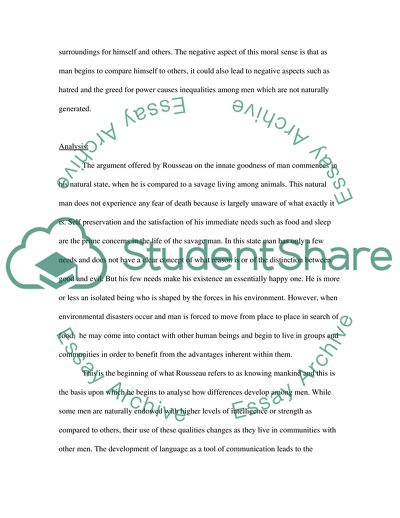Cite this document
(Rousseaus Views on Natural Goodness in Man Term Paper, n.d.)
Rousseaus Views on Natural Goodness in Man Term Paper. https://studentshare.org/philosophy/1706120-for-rousseau-are-humans-naturally-good
Rousseaus Views on Natural Goodness in Man Term Paper. https://studentshare.org/philosophy/1706120-for-rousseau-are-humans-naturally-good
(Rousseaus Views on Natural Goodness in Man Term Paper)
Rousseaus Views on Natural Goodness in Man Term Paper. https://studentshare.org/philosophy/1706120-for-rousseau-are-humans-naturally-good.
Rousseaus Views on Natural Goodness in Man Term Paper. https://studentshare.org/philosophy/1706120-for-rousseau-are-humans-naturally-good.
“Rousseaus Views on Natural Goodness in Man Term Paper”. https://studentshare.org/philosophy/1706120-for-rousseau-are-humans-naturally-good.


